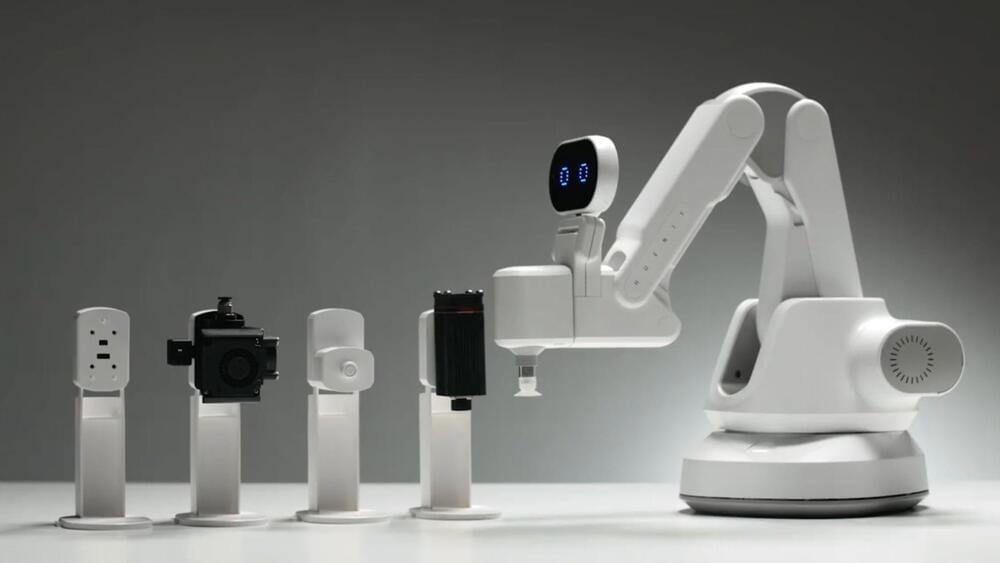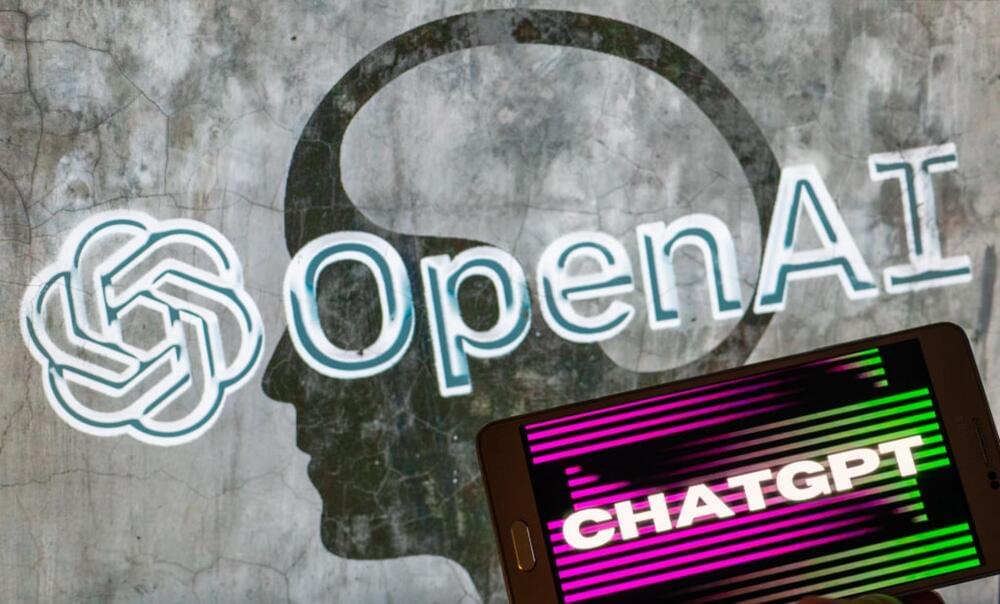Year 2022 Basically this could easily create a near perfect code and solve for coding problems. This could also create the superintelligence in ai.
Are we about to be replaced by an AI, again?
Year 2022 Basically this could easily create a near perfect code and solve for coding problems. This could also create the superintelligence in ai.
Are we about to be replaced by an AI, again?
In this video I discuss why Neuromorphic processors is the future of AI #NeuromorphicChips #Loihi #IntelNeuromorphic.
➞ Register for Phenom AI Day here:
https://bit.ly/3l4CDWx.
TIMESTAMPS:
00:00 — Intro.
00:32 — Phenom AI day (Ad)
01:03 — What is Neuromorphic Chip.
03:19 — Intel Loihi explained.
07:16 — New Intel Loihi 2
09:45 — Analog Neuromorphic chip by Rain Neuromorphic.
10:45 — Other chips.
***
➞ Support me on Patreon: https://www.patreon.com/AnastasiInTech.
➞ Subscribe for new videos every week! ❤ And leave me a comment below!


It can also rotate 220 degrees and lift up to 26.5 ounces of weight.
Supernova, a South Korean startup, has designed HUENIT, a robotic arm to help people with various household chores and creative tasks. Supernova showcased its AI Camera and Robot Arm at CES 2023. The company has been developing innovative robots to help people with everyday tasks.
Although many innovative technologies were showcased at the CES 2023, the Huenit Robot Arm captured the attention of visitors. HUENIT is an easy-to-use AI-based multi-functional robotic arm that combines advanced AI technologies with a modular arm to work on complex tasks with high precision. The robot can do everything from making coffee to 3D printing a prototype.
The robot is used for installing implants.
Could a robot make dentistry speedier and more comfortable? That’s what the new Yomi robot aims to do for implants, according to the device’s website. “We created Yomi to tackle one of the dental procedures people fear the most, implants,” write the robot’s inventors on their site.
The first and only FDA-approved dental surgery robot.
“Yomi is the first and only FDA-cleared robotic system for dental surgery. Through a combination of haptic feedback, intuitive visualization, and audio cues, Yomi helps doctors place implants with superior accuracy and precision.”
Yomi.

Can we wave goodbye to high attorney fees already?
A program trained with the help of artificial intelligence is set to help a defendant contest his case in a U.S. court next month, New Scientist.
Posteriori/iStock.
In a new development, a company, DoNotPay, which has been training AI, has now claimed that its program will be able to defend a speeding case that is due to be heard in a U.S. court in February 2023. Identities of the individual and the court remain under wraps, but we do know that the defendant is contesting a speeding ticket.

ChatGPT has taken the world by storm with its surprisingly sharp replies to prompts. At CES 2023, an expert explained it could kickstart a new wave of AI.
Artificial intelligence is entering a second wave of development as signalled by the likes of ChatGPT, an expert in the field explained Thursday.
NurPhoto / Contributor/Getty Images.
Developed by OpenAI, ChatGPT stunned observers in late 2022 with its ability to produce answers to abstract and complex questions. Speaking at the 2023 Consumer Electronics Show in Las Vegas on Thursday, Zico Kolter, chief scientist of AI at Bosch, explained how the system’s ability to respond to input from a variety of sources move away from application-specific AI systems and toward a more general system that works in a variety of cases.
Artificial intelligence can be impressive to the extent that people think it might one day acquire human intelligence and, with it, consciousness. But AI can be far more intelligent than humans without ever being conscious. And apart from us having no idea how to create conscious AI, it might not even be that desirable. We fool ourselves if we think conscious beings are the exemplar of intelligence in the universe, argues Susan Schneider in this interview with iai News.
Deep Learning AI Specialization: https://imp.i384100.net/GET-STARTED
Nvidia Isaac AI robot simulation just added several new features, including advancements in Isaac Gym for reinforcement learning and Isaac Cortex for collaborative robot programming, as well as a new tool called Isaac ORBIT, which provides simulation operating environments and benchmarks for intelligent robot learning and motion planning. New open source Dream3D turns text prompts into 3D modeling objects much faster than OpenAI Point-E. Breakthrough Google Muse turns text into high-quality images with accuracy and greater speed than DALL-E 2 from OpenAI and Google’s Imagen or Parti.
AI News Timestamps:
0:00 Nvidia AI Robot Simulation Tech.
2:05 Dream3D Text To 3D Modeling AI
4:29 Nvidia Artificial Intelligence Avatar Tech.
5:34 New Google “Muse” Artificial Intelligence.
#technology #tech #ai